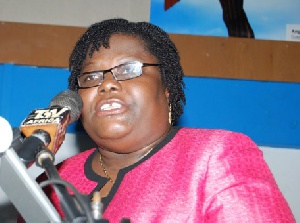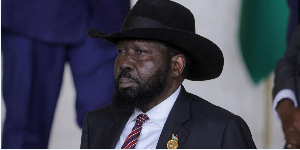The Ministry of Gender, Children and Social Protection is expected to make available over GH¢9 million as payment to beneficiary households under the Livelihood Empowerment Against Poverty (LEAP).
Payment begins on Monday, July 21, a statement from the Ministry has said.
A total of 72,780 households will benefit from this month’s payments.
“While 8,324 households in 10 districts from seven regions will receive their payments electronically, 64,456 would be paid manually,” the statement issued on Tuesday, July 15 said.
Below is the full statement:
GENDER MINISTRY MAKES CASH PAYMENT TO BENEFICIARIES OF THE LIVELIHOOD EMPOWERMENT AGAINST POVERTY (LEAP) PROGRAMME
A total of 72,780 beneficiary households of the Livelihood Empowerment Against Poverty (LEAP) Programme in 100 districts in all ten (10) regions across the country are set to receive GHC 9,128,856 from 21st to 25th July, 2014.
The amount which is the Government of Ghana’s social intervention cash payments for their children. This is a strategy to promote the welfare of the vulnerable and excluded in the society.
While 8,324 beneficiary households in 10 districts from seven regions will receive their payments electronically, 64,456 would be paid manually.
The electronic payment is the Ministry’s latest innovation in the cash transfer Programme aimed at reducing transaction costs for government and recipients, faster payments and reconciliation after payments, reducing waiting and travel times for beneficiaries as well as promoting financial inclusion and supporting the trend of cashless transactions among others. The July payment is the 5th Cycle of the electronic payment pilot.
A significant number of 7,860 Persons with disability households currently benefit from the bi-monthly cash grant transfer programme. As the programme expands to cover another 4,676 beneficiary households, this number of persons with severe disability and no productive capacity is expected to increase.
The Livelihood Empowerment Against Poverty Programme (LEAP) is the flagship programme of Ghana’s National Social Protection Strategy administered by the Ministry of Gender, Children and Social Protection under the Department of Social welfare.
The Government of Ghana under its National Social Protection Strategy (NSPS), implements a number of pro-poor interventions through different Sector Ministries. To ensure effective and efficient coordination, planning and implementation as well as value for money, the Ministry of Gender, Children and Social Protection which is mandated to coordinate these pro-poor interventions, is setting up a National Targeting Unit.
The Targeting Unit aims at identifying, characterizing and providing a data on poor and vulnerable households in Ghana to create a single National Single Registry System. With this Single registry, the Unit can progressively expand the implementation of Social Protection interventions. It would also ensure the vulnerable poor have access to the benefits offered by various Social Protection Programmes.
Through the LEAP Programme, government is improving the lives of its citizens, reducing the level of poverty in the nation, and increasing the socio-economic standard. Many households and individuals have been able to provide for their basic needs, and had access to education, health and food. Beneficiaries have also had some capital to start small-scale business ventures for sustainable income to ultimately stay out of abject poverty.
This economic growth is within the framework of the Ghana Shared Growth and Development Agenda (GSRDA). This also complements the vision of the MDGs which were designed to rid the world of the extremes of poverty.
As the country strives to attain improved economic status, it is important that we ensure equitable and sustainable development towards a positive social change by putting in such interventions that would address issues of vulnerability.
The Ministry of Gender, Children and Social protection reiterates its commitment to ensuring the protection of the vulnerable and promotion of gender equality through the design and implementation of policies and programmes that address such needs.
Signed
Mercy C. Adjabeng (Mrs.)
Communication & Advisor
Ministry of Gender, children and Social Protection
Regional News of Wednesday, 16 July 2014
Source: tv3network.com
LEAP payment for July from Monday
Opinions












